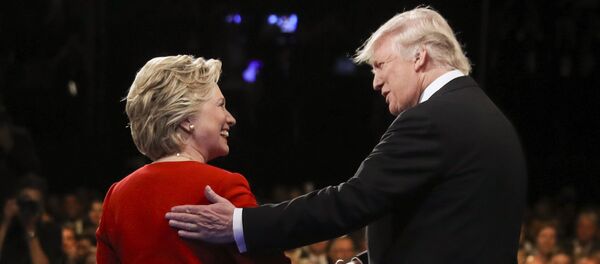"Russia presents a very serious challenge for America," Cardin, the top-ranking Democrat in the Senate Foreign Relations Committee, told reporters Wednesday. "They're not our partner. They're a bully."
"Whether you attack us by MiG (fighter) or by mouse, it's an attack. It requires a response. It's clear that they were responsible for the cyber-attack on our country in this past election," the senator added, referring to the hacking and leak of Democratic National Committee and Clinton campaign emails during the campaign.
Cardin's proposals echoed those made by senior Republican lawmakers, including Senators John McCain and Lindsey Graham, both men known for their hawkish positions on Russia. Earlier this week, Graham said that he would like to see Senate hearings on whether Moscow interfered in the US election, stressing that "we can't sit on the sidelines."
"[President-elect Trump] wants to reset with Russia. Maybe he can do it," Graham said. "But here's my view about Russia: They're a bad actor in the world and they need to be reined in."
Asked to comment on this Congressional 'revenge of the Russophobes', obviously meant to challenge President-elect Trump's goal of normalizing relations with Moscow, Russian US watchers suggested that it would have been foolish to expect anything else.
Speaking to the Svobodnaya Pressa online newspaper, political analyst Kirill Benediktov recalled that unfortunately, US Congress is set up in such a way that "for the vast majority of representatives and senators, Russophobia is the rule, rather than the exception."
Accordingly, he noted, "expecting this powerful legislative machine to quickly fall in line with Trump, who has called for improved relations with Russia, would be naïve. On the contrary, if Trump is consistent in his effort to bring US-Russian relations out of the impasse they have been driven into by…liberal interventionists and neocons over the last twenty years, he will face months and months of intense confrontation with Congress."
Ultimately, Benediktov suggested that he is far more concerned by Republican efforts to influence President-elect Trump, including attempts to push their preferred candidate for the post of Secretary of State. "If they succeed, and someone like John Bolton comes to head the Trump administration's foreign policy, this will be a very serious obstacle to the normalization of US-Russian relations."
For his part, US politics expert Dmitri Drobnitsky said that he didn't find it at all surprising that Senate Democrats would try to introduce a bill like Cardin's. "As we know, the Democratic Party has three explanations for Hillary Clinton's election defeat: FBI Director James Comey, systemic racism among Americans, and Russia."
In any case, Drobnitsky noted that while "Hillary Clinton has urged her fellow Democrats not to give up the fight, after their electoral defeat, the Democrats probably won't remain monolithic, meaning all of these initiatives, especially in the area of foreign policy, will have little chance of success. Anyway, I think that the Washington establishment has convinced itself that it could lose to a non-systemic candidate like Trump only thanks to the intervention of an external foe."
Finally, Maksim Suchkov, an expert at the Russian International Affairs Council, suggested that the Russia-weary talk in Congress should be seen as a wakeup call to anyone in Moscow who still believes that restoring relations with Washington would be easy.
"Trump's sensational victory may have shocked the American establishment, but neither they nor the mainstream media are going to give up their fight against him…On the contrary, the positive leitmotif which came out of Trump's telephone conversation with Putin only exacerbated their fears about Trump's disposition in favor of Moscow, even if that in itself is not quite true."
At the same time, the expert stressed that "even more frightening to US officials, diplomats and experts are the statements coming out of the Russian Foreign Ministry on the need to start making contact with the President-elect's team on settling the conflict in Syria. Not able to influence Trump's position directly…allies of the losing but not defeated establishment are looking for opportunities to create as many barriers as possible to the implementation of his future policies." Bills in Congress, like those of Senator Cardin, are one tried and tested instrument to try to do so.





